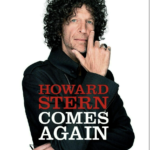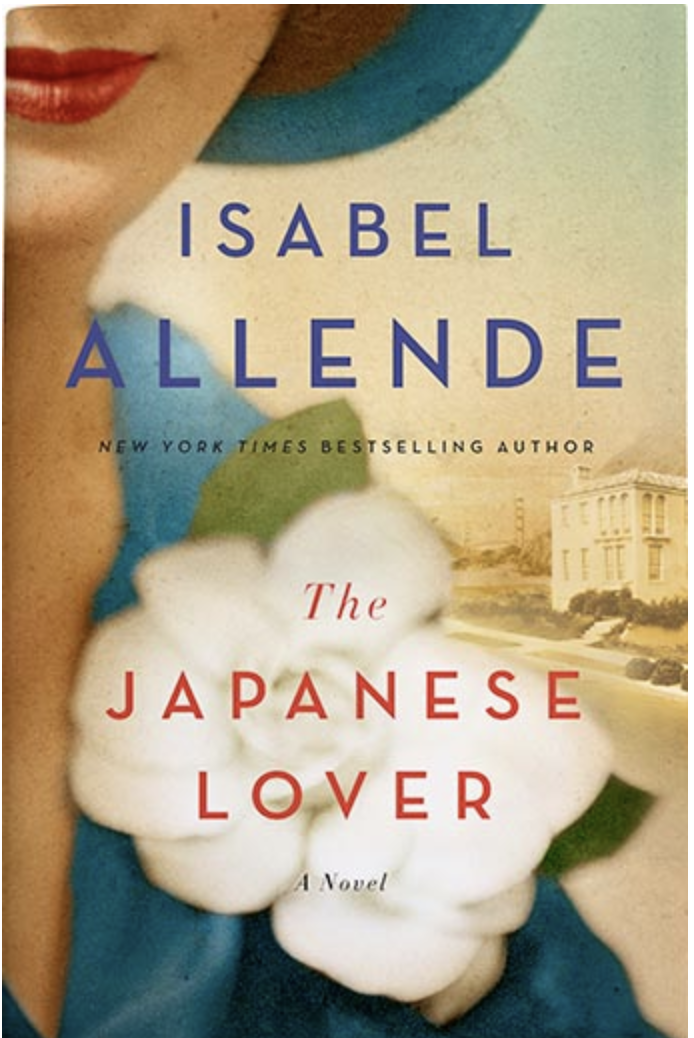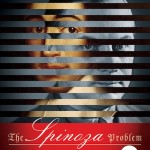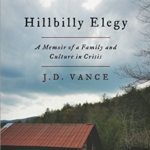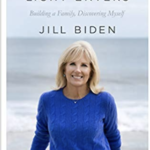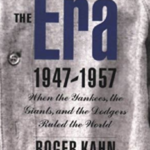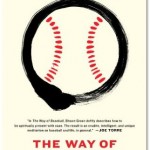Power Concedes Nothing by Connie RIce
Power Concedes Nothing: One Woman’s Quest for Social Justice in American, from the Courtroom to the Kill Zones by Connie Rice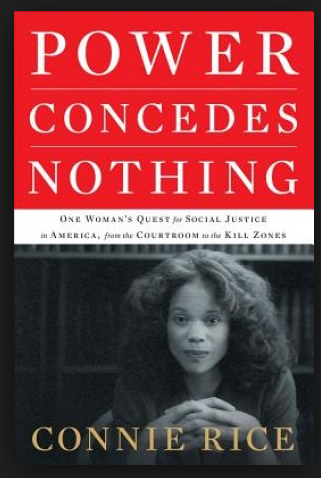
I seldom go around telling certain people that they must read a particular book. I did find myself dong just that in regard to this book. If you have been interested in the battle for social justice, especially in regard to Los Angeles, you will definitely find this book quite fascinating.
Connie Rice (who by the way is a distant cousin of former Secretary of State Condolezza Rice) grew up as the daughter of Air Force officer who was the great grandson of a slave and a mother who was a high school teacher who happened to be the great granddaughter of a slave owner. Her family moved several times before she completed high school. Her parents valued education and she also was quite bright and ended up attending college at Radcliff/Harvard and then going to N.Y.U. Law School. After clerking for some important judges, she could have worked in a prestigious law firm and have a very respectable corporate or white-collar law career. She certainly went on to achieve an extremely respectable career but she chose to do it confronting civil rights and gang violence. The journey that she has taken, the fights that she has undertaken, the forces that she has confronted, the allies that she has worked with and the accomplishments that she has achieved thus far in her still vibrant career are remarkable and are chronicled in this memoir.
Early in her career, she became a part of the NAACP Legal Defense Fund (known as the LDF). It was originally pioneered by Thurgood Marshall, before he became the first black Justice of the U.S. Supreme Court. I thought I knew something about justice, particularly how capital punishment, was unfairly administered in the U.S. “I didn’t know jack.” The inside stories Ms. Rice reveals in this fight for justice, were eye opening. However, this phase of her career was tame compared to what was to come next when circumstances brought her out to the West Coast to open the Los Angeles branch of the LDF.
Ms. Rice became squarely involved in the battles for social justice in Los Anglees. She takes us through the Rodney King incident where a black construction worker was stopped by the police and beaten for no cause. Subsequently there were riots in Los Angeles when the police involved in these beatings were exonerated by a trial, which had been moved to Simi Valley, which was a known area where many police families live. Ms. Rice was in many subsequent legal cases where she sued the police and represented victims of police violence. She also tells about the almost impossible to describe gang violence that existed in certain areas of Los Angeles that became known as the “kill zones.” She was known as the “ lady lawyer” as she was introduced to gang activities by a few former gang member who were trying (with mostly futile attempts) to make changes and were trusted within the gangs. Ms. Rice captures the horrible circumstances inside the gangs where there existed a culture dominated by frequent murder of opposing gang members. Two vignettes that she told will illustrate how bad things were and how vividly she was able to describe them.
#1 A teenage boy was approached by the leader of one gang and asked to become a gang member The boy stated that that his family didn’t want him to join and he was involved in schoolwork. After he politely declined a second time, he was asked to view a DVD. In it was shown his younger sister being brutally raped by gang members. He was then told if he didn’t join the gang, his sister would be raped again and murdered. He joined the gang.
#2 A ten-year-old boy was introduced to Ms. Rice by some gang members. She asked the child how he was involved in the gang. He proudly told her that he “shoots people.” When the gang wanted to murder someone, they lured this person to a street where the young boy was unobtrusively stationed. He pulled out the gun that he was trained to use and shot the victim and ran way.
These were just two of the many stories of how the gangs had taken away the lives of young people in more than one way.
The murder rate in Los Angeles was very high and the philosophy of the Los Angeles Police Department at this time was to “contain” the violence rather than try to eliminate it. There was also a certain amount of violence and corruption coming from the police department itself. Connie Rice was one of the soldiers in the battle to change this situation. She used her legal skills as well as her interpersonal ability to begin a sea change that is still going on in Los Angeles. She worked side by side with gang members, gang interventionists, enlightened members of the police department, politicians and other dedicated lawyers. She told of her experience with people from the gangs to others in the trenches with her. She names names, good and bad, from Mayors, police officers and attorneys. Among others, she developed a close alliance with Police Chief Bratton and up and coming Charlie Beck who subsequently became Police Chief when Bratton retired. One of the heroes of the book was Harry Bellafonte and it wasn’t for his singing. Rather it was for the emotional support he played as a father figure for many gang members as well as for his financial support for various programs. Ms. Rice has been an ongoing witness and a participant to bringing about changes in the kill zones that actually significantly reduced the murder rate there. She documented how each murder that did not occur saved close to a million dollars for society as well as the human savings.
Ms. Rice feels that the battle is not over yet. She champions the ideology of Martin Luther King who predicted that significant change wouldn’t occur until there was a “ radical restructuring of society itself and revolution of values.” If you care about the changes that have occurred in Los Angeles in the past few decades and those that need to occur in the future, I suggest that you should read this book.

